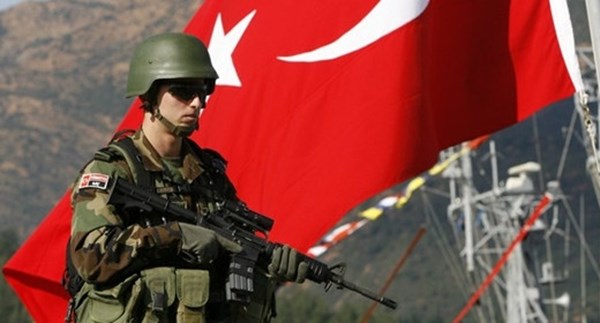Turkey and US conduct first joint patrol in Syrian de-escalation zone
On Sunday, Turkish and American troops carried out their first ground patrol in the “security zone” in north-eastern Syria, which is controlled by Kurds.
Ankara insists on patrolling the buffer zone in order to keep Kurdish fighters away from the Turkish border. Turkey considers the Kurdish militia in Syria terrorists linked to the Kurdish fighters in Turkey who have fought against the Ankara government for three decades. However, the Syrian Kurds are key allies to the US in the fight against the Islamic State in Syria.
The Kurd-led forces have already withdrawn 14 km from the Turkish border, but Turkey is calling for a 30 km buffer zone. There are not yet any specific details on the breadth of the proposed safe zone or how it will be monitored.
In the last four years, the US military has had to mediate between the Turkish army and the Kurdish fighters in peace matters.
Vehicles with the Turkish and US flags patrolled the region to the east of the Turkish border city of Akçakale, which is close to the Syrian city of Tell Abiad. Turkish troops, escorted for some time by two combat aircraft, headed south and returned to Turkey several hours later.
Turkey is the US’s ally through NATO, although in recent times Washington and Ankara have had numerous disagreements on security matters.
Several hours after the first patrol, Turkish President Recep Erdogan told his supporters: “We are negotiating with the US to create a safe zone, but at every step we see that what we want and what they have in mind are different things. It seems like our ally is trying to create a safe zone for the terrorist organization (the Kurdish fighters), and not for us. We reject such an understanding.”
Erdogan said that Turkey must secure “the entire region” so that it can resettle in the safe zone 1 million of the 3.6 million Syrian refugees who are currently in Turkey.
The Syrian government has called the joint US-Turkish patrol a “flagrant violation” of its sovereignty and “territorial integrity”
